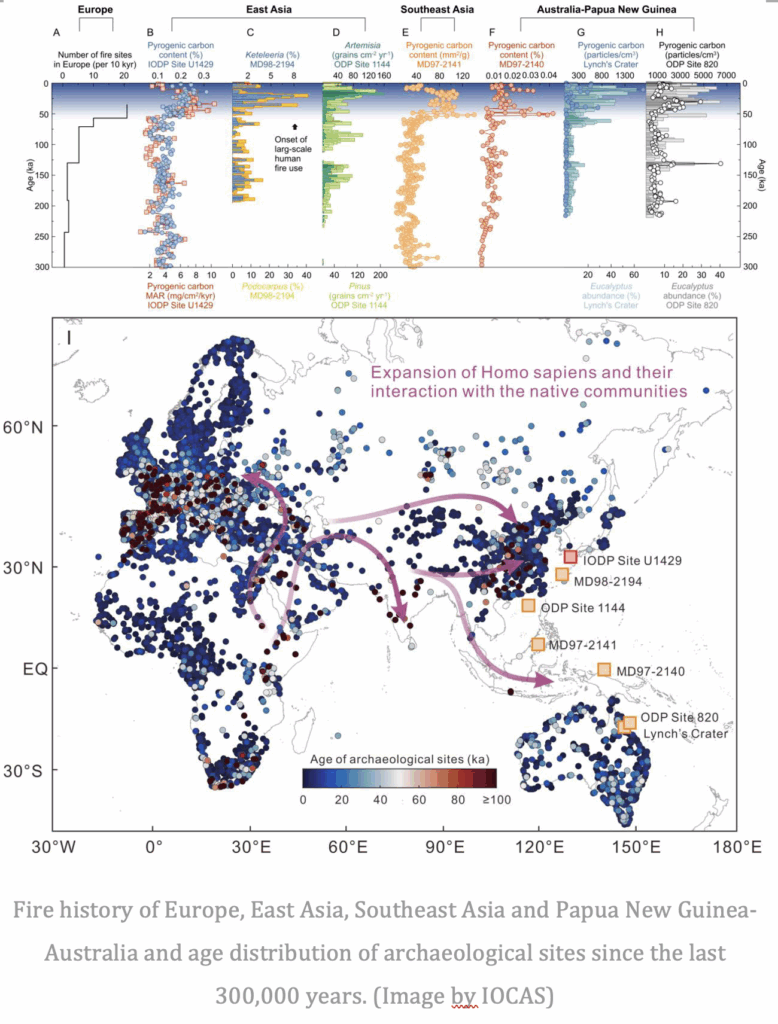https://www.pnas.org/doi/10.1073/pnas.2500042122
http://english.cas.cn/newsroom/research_news/earth/202506/t20250620_1045922.shtml
With the arrival of humans, fire began to transition from a purely natural force to one that could be harnessed to achieve specific goals. However, it has long been unclear when humans started using fire extensively to regulate their lives and significantly influence fire occurrences.
Researchers from the CAS Institute of Oceanology, in collaboration with colleagues from China, Germany, and France, have analyzed the pyrogenic carbon record in a 300,000-year-old sediment core from the East China Sea. The research revealed a notable increase in fire activity across East Asia approximately 50,000 years ago. This finding aligns with earlier reports of heightened fire activities in Europe, Southeast Asia, and the Papua New Guinea–Australia region respectively, suggesting a continental-scale intensification of fire use during this period.
Paleoanthropologists who endorse the theory of evolution suggest that the common ancestors of all modern humans originated in Africa around 300,000 years ago, with Homo sapiens first emerging during this period. Between 70,000 and 50,000 years ago, Homo sapiens migrated from Africa to Europe, Asia, Southeast Asia, and Australia, eventually replacing local ancient human populations. The study highlights that this global rise in fire use coincides with the rapid spread of Homo sapiens, increasing population densities, and a greater reliance on fire, particularly amid cold, glacial conditions. During this period, fire not only facilitated cooking—allowing for more efficient absorption of nutrients from food—but also provided protection against predators and helped humans survive in extreme climates. This reliance on fire contributed to cultural advancements, technological innovations, and a significant impact on natural systems, especially the carbon cycle.
Humans likely began shaping ecosystems and the global carbon cycle through their use of fire even before the Last Ice Age. These conclusions have significant implications for understanding Earth’s sensitivity to human impacts. If human fire management altered atmospheric carbon levels tens of thousands of years ago, current climate models may underestimate the historical baseline of human–environment interactions.

